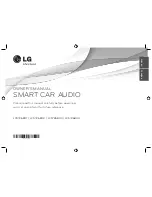
Uniform Call Distribution (UCD)
Description
With Uniform Call Distribution (UCD), an extension user can call an idle extension in a preprogrammed
UCD Group (Department Group - 32 Department Groups available) by dialing the group pilot number.
For example, this would let a caller dial the Sales department just by knowing the Sales department
pilot number. The caller would not have to know any of the Sales department extension numbers.
Use Log Out/Log In
An extension user can log out and log in to a UCD (Department) group. By logging out, the user
removes their extension from the group. Once logged out, UCD (Department Calling) bypasses their
extension. When they log back in, UCD (Department Calling) routes to their extension normally. All
users can dial a code to log in or log out of their UCD (Department Calling) Group. A Multiline Terminal
can optionally have a function key programmed for one-button log in and log out.
Enhanced Hunting
UCD (Department Calling) is enhanced with expanded hunting abilities. Hunting sets the conditions
under which calls to a UCD (Department Group) pilot number cycles through the members of the
group. The hunting choices are:
• Busy
A call to the pilot number only hunts past a busy group member to the first available extension. A
call rings on an unanswered extension until it is answered, or the caller hangs up.
• Not Answered
A call to the pilot number cycles through the idle members of a UCD (Department Calling) group.
The call continues to cycle until it is answered or the calling party hangs up. However, if the next
station in the cycle is busy when a new call comes in, the call queues to the busy agent. New calls
do not hunt past a busy agent.
• Busy or Not Answered
A call to the pilot number cycles through the idle members of a UCD (Department Calling) group.
The call continues to cycle until it is answered or the calling party hangs up.
If all members of the UCD (Department) group are busy, an incoming or transferred call to the group
pilot number queues for an available member. Each group has a queue that can hold any number of
waiting calls. If a display telephone is waiting in queue, the user sees: WAITING (group name). If a
transferred call in queue is an outside call, and the system has a DSP daughter board installed with
the VRS compact flash, the queued caller hears, “Please hold on. All lines are busy. Your call will be
answered when a line becomes free.”
The VRS can also transfer calls to UCD (Department) groups. Refer to the
Voice Response System
(VRS) on page 1-798
feature for more information on setting up the VRS.
The system prevents hunting to a UCD (Department) group extension if it is:
• Busy on a call
• In Do Not Disturb
• Call Forwarded
• Logged Out
Conditions
• When a DIL rings to a UCD (Department) groups, the DIL may follow overflow programming (PRG
22-01-04 and PRG 22-08-01).
• If an extension has Call Forwarding set, the system does not hunt to the forwarded extension.
SL1100
ISSUE 2.0
1-766
Uniform Call Distribution (UCD)
U
Summary of Contents for SL1100
Page 2: ......
Page 3: ...Features and Specifications Manual A50 031169 003 NA ISSUE 2 0 ...
Page 171: ...5 Press Speaker key to hang up ISSUE 2 0 SL1100 Features and Specifications Manual 1 159 C ...
Page 218: ...2 Dial 724 SL1100 ISSUE 2 0 1 206 Dial Pad Confirmation Tone D ...
Page 741: ... Direct Inward Dialing DID ISSUE 2 0 SL1100 Features and Specifications Manual 1 729 T ...
Page 856: ...MEMO SL1100 ISSUE 2 0 2 26 Codes Tables ...
Page 862: ...MEMO SL1100 ISSUE 2 0 3 6 Features Availability by Software Revision ...
Page 863: ...MEMO ISSUE 2 0 SL1100 Features and Specifications Manual 3 7 ...
Page 864: ...Features and Specifications Manual NEC Corporation ISSUE 2 0 ...
















































